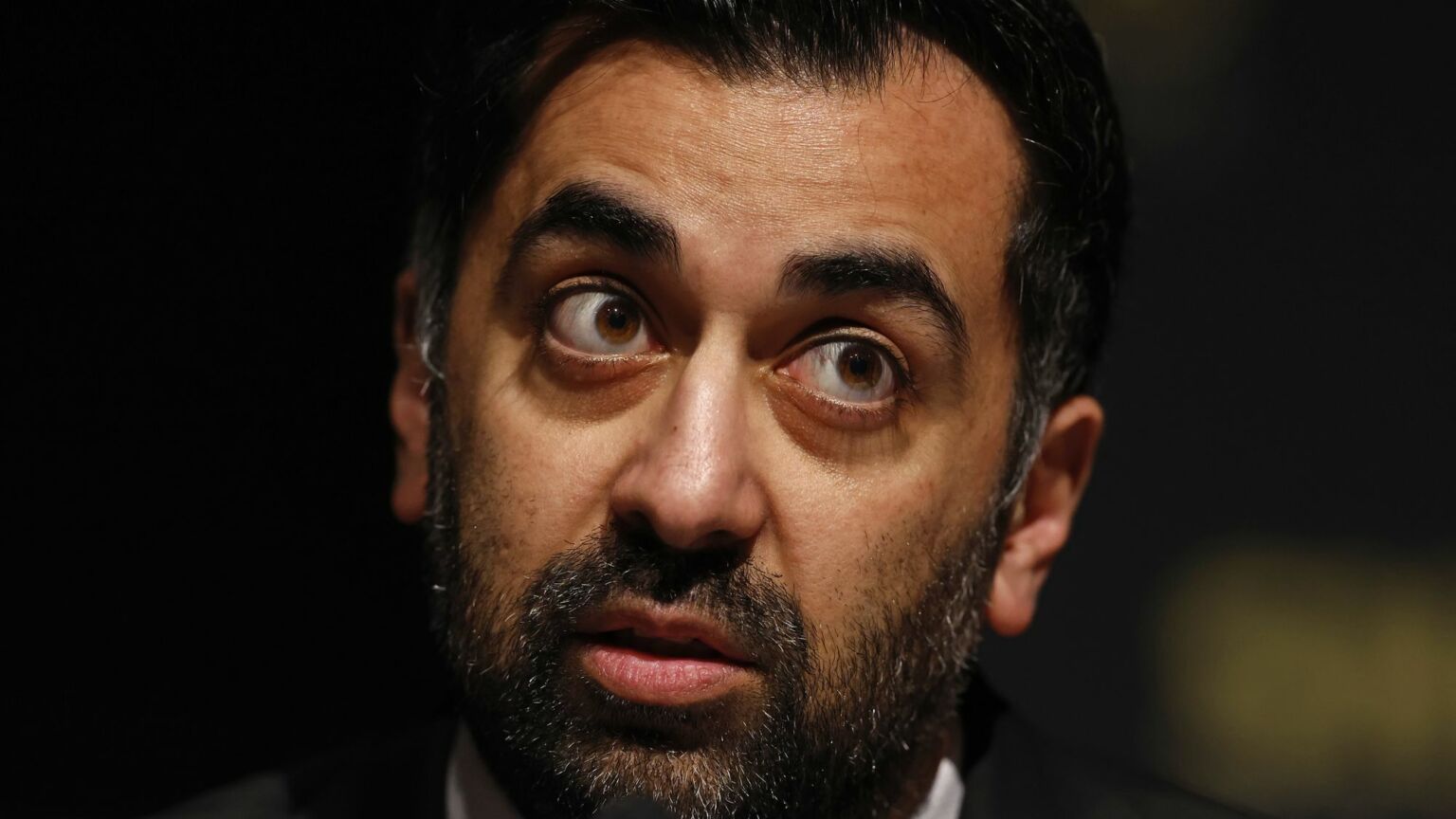Humza Yousaf and the folly of self-ID
His renewed push for gender-recognition reform is beyond irrational.

Two weeks on from his election as leader of the SNP, Scotland’s first minister, Humza Yousaf, is already in trouble. What ought to have been his honeymoon period has been overshadowed by the police investigation into his party’s finances. Last week’s scenes of officers surrounding Nicola Sturgeon’s home, and the arrest of her husband and former SNP chief executive Peter Murrell, have not been the best look for the post-Sturgeon ‘continuity candidate’. Yet instead of seeking to distance himself from the old guard, Yousaf has now picked up the very same policy dagger that slayed the former first minister and has angled the point towards his own chest. It’s an opening scene with all the grim inevitability of the Scottish play.
At the top of Yousaf’s to-do list is the revival of his predecessor’s bonkers push for gender self-identification – a proposed legal change that was blocked by the UK government earlier this year, using Section 35 of the Scotland Act. The Sunday Times reports Yousaf telling journalists: ‘I made abundantly clear throughout the course of the leadership contest that my starting principle is to challenge the Westminster veto over the GRR [Gender Recognition Reform] bill… I’ll be making an announcement on the potential challenge of the Section 35 order imminently.’
SNP ministers have until 17 April to launch a legal challenge to the decision to block the GRR and they are expected to do so this week. The Westminster government vetoed the proposed legislation largely because of concerns about the impact it would have on the rights of women and children across England and Wales. The Equality and Human Rights Commission (EHRC) wrote to the Scottish government to warn of exactly these issues when the GRR was first introduced. The EHRC pointed out that a change in Scottish law would also have ramifications across the border. It also highlighted how the proposals might undermine existing laws protecting women’s rights.
In the weeks after MSPs voted the GRR bill through, the clear drawbacks of self-identification became all too clear. In January, stories began to break of violent, male sex offenders being housed in women’s prisons, as Scottish prisons were already effectively operating under a self-identification policy. There was widespread horror. MSPs were asked to clarify if they believed that criminals like Andrew Burns (aka Tiffany Scott), Adam Graham (aka Isla Bryson), Lennon Dolatowski (aka Katie Dolatowski) were really women as they claimed to be.
Before all of this emerged, then first minister Nicola Sturgeon had dismissed fears that gender self-identification could compromise women’s safety as ‘not valid’. After her bill was blocked by Westminster, she smeared the bill’s opponents as ‘transphobic… misogynist, often homophobic, possibly some of them racist as well’.
But the Scottish public clearly saw through the smears and the hollow reassurances. A YouGov survey carried out last year on behalf of The Times found that the majority of the public disagreed with every major measure in the GRR bill. Sixty per cent of respondents disagreed with the proposal to allow people to self-declare their own gender without a medical diagnosis of gender dysphoria. Sixty-six per cent were also opposed to the lowering of the age limit to obtain a gender-recognition certificate, from 18 to 16. The GRR bill also sparked the SNP’s largest parliamentary rebellion to date. Many commentators attributed Sturgeon’s decision to step down in February to the failure of the GRR – her ‘flagship policy’ – to win public support.
And yet, bizarrely, Humza Yousaf now finds himself like Greyfriars’ Bobby, sitting by the grave of this deeply unpopular proposal. It is not often that a politician does something so mad that it defies all rational explanation. The new first minister had a golden opportunity to distance himself from a widely divisive policy and to refocus the SNP on issues that matter to Scottish voters. Mystifyingly, he has instead chosen to double down on self-ID.
In the drama unfolding in Scottish politics today, the central character’s flaws are neither vaulting ambition nor a susceptibility to flattery, but rather blind faith, plain ineptitude and poor judgement. When the curtain finally falls, and this plan inevitably blows up in Yousaf’s face, there will be few clapping in the audience.
Jo Bartosch is a journalist campaigning for the rights of women and girls.
Picture by: Getty.
To enquire about republishing spiked’s content, a right to reply or to request a correction, please contact the managing editor, Viv Regan.









Comments
Want to join the conversation?
Only spiked supporters and patrons, who donate regularly to us, can comment on our articles.